And Mars will bloom apple trees
An open competition for the development of a concept for the development of space activities in Russia by the Federal Space Agency (Roskosmos) was announced last year. The initial value of the contract was 883 million rubles, works for the competition were accepted from 27 December 2013 to 4 February 2014. The results of the competition should have been announced before February 13. In the announced competition, it was pointed out that conceptual documents were to be created on the basis of "Basic system studies of the problems of studying and conquering space in Russia and abroad for the period up to 2030 of the year", which were carried out under the previous government contract, which was held under the code " Highway "(" Strategy "). In turn, the new Russian concept of space development has received the name "Strategy-2".
The concept presented by Rogozin is divided into three major sections. The first is reduced to the effective economic development of low earth orbits. It is about the development and commercial application of Earth remote sensing (RSD), communication services. These tasks include the provision of television, the Internet, radio and telephone communications to residents of remote areas of our country. Importance is given to hydrometeorology, geological exploration, cartography, detection and monitoring of emergencies, information support of economic activities, the environmental situation, earthquake prediction and other destructive effects of natural phenomena.
To meet the above needs, Russia should create its own updated remote sensing system, which should include high-resolution spacecraft, meteorological and geophysical satellites, and emergency monitoring satellites. The minimum orbital grouping of such devices for our country is 28 units. At present, Russia has the necessary groundwork for deploying a group of such numbers in space. This can be done over the next 7-10 years. This task is to be accomplished as part of the Federal Space Program being created at the moment on 2016-2025 years.
The second stage of the program is reduced to the landing of Russian astronauts on the moon in 2030, the colonization of this celestial body will begin this year. According to Rogozin, Russia expects to come to the moon forever, in the coming 50 years, mankind will be able to send its manned spacecraft no further than Mars or Venus, and therefore all tasks should be formulated within this limited space. Here you have to make a choice: the Moon, Mars, or work to study the asteroid belt, since Russia will not pull all directions at once. Currently, the choice was made in favor of the moon. Gradually on the lunar surface will be deployed test sites for the accumulation and transmission of energy over a distance, testing new engines. According to Dmitry Rogozin, the exploration of the moon should resemble the exploration of a new continent by people.
At present, according to many scientists, the Moon is still an important object for conducting basic research. The origin of the natural satellite of the Earth in many ways can shed light on the most important and complex issues of cosmogony: the birth of our solar system, the process of its development and the future. On the moon, people can wait for very important discoveries. In addition, the Moon is the closest to our planet and is still the only available human source of extraterrestrial matter, minerals, minerals, various volatile compounds, water. This is a natural platform that can be used to test new space technology and technological research.
Today, many nations of the world share the need to master the moon. These views are shared by united Europe, Japan, India and China. If we talk about the United States, they are currently at a crossroads. Even 40 years ago, the States implemented a large-scale program of expeditions to the moon as part of the Apollo program, and the thesis “return” sounds less vividly than the thesis “development”.
According to Dmitry Rogozin, Russia does not position the task of flying to the moon as a task limited in resources and time. In our strategy, the Moon is not an intermediate goal, but an independent and completely self-sufficient one. It hardly makes sense to make 10-20 missions to the moon, so that after leaving everything, fly to asteroids or Mars. This process may have a beginning, but there can be no end; Russia must come to the moon forever.
At the third stage, Roskosmos expects to use our natural satellite as a platform for more distant space travels - to the asteroid belt and Mars, where research programs will dominate at the first stage. In addition, flights to Mars or to asteroids not only do not contradict the exploration of the Moon by Russia, but also largely imply this process.
To fulfill these goals, it is necessary to provide Russia with guaranteed access to space from the territory of our country, which means the gradual transfer of space launches of dual and defense purposes from the Baikonur cosmodrome located in Kazakhstan to the Plesetsk and Vostochny cosmodromes. At the same time, Russia is not going to leave Baikonur. Launch complexes of the legendary Soviet cosmodrome will not stand idle. They are planned to be used in the framework of various international programs and with more active participation from Kazakhstan.
At the same time, it is worth thinking about what to fly into space. While concrete is pouring into the base of the launch pad of the Vostochny cosmodrome in the Far East, Russian enterprises of the rocket and space industry are finishing work on creating promising space launch vehicles of various classes: light, medium and heavy based on the Soyuz-2 and Angara rocket complexes ". At the same time, work is underway to determine the technical appearance of the manned complex, which is planned to be created on the basis of a super-heavy rocket for flights to the Moon, and in the future to the Red Planet. In addition, Russia is working to create powerful interorbital (interplanetary) tugboats, without the creation of which, the exploration of the Moon and the planets of our Solar System is not feasible.
At the same time, the Deputy Prime Minister outlined the “Achilles' heel” of our cosmonautics. According to him, this is the manufacture of high-quality electronics. Created in recent years, airborne relay systems for Russian communication satellites are either completely manufactured by foreign companies or are being built in Russia, but on the basis of foreign components. At the same time, up to 90% of the entire equipment of any spacecraft consists of electronics.
At the same time, in the sphere of creating new spacecraft and engines, Russia is gradually losing its primacy. For example, 12 January 2014, the American drone ship Cygnus docked to the board of the ISS. Its total payload is 2,7 tons, while the Russian Progress-M is able to lift a little more than 2 tons of cargo into orbit. At the same time, the ship Cygnus, as well as the launch vehicle Antares, was developed by a private company from the USA - Orbital Sciences Corporation, which employs about 4 thousands of employees. Also in 2013, for the third time, another American cargo ship, the Dragon, developed by SpaceX, flew to the ISS for the third time. This spacecraft is capable of delivering tons of cargo to orbit up to 6.
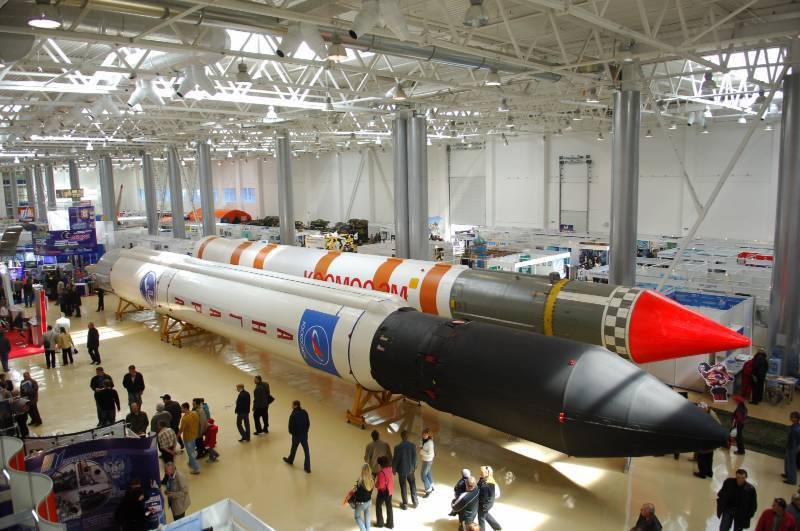
At the same time, the operation of Russian missiles and ships is more expensive than that of foreign competitors, including China. The Russian transport and manned spacecraft Progress and Soyuz are veterans of cosmonautics. At the same time, SpaceX, which was founded in 2002 year and is the developer of the Dragon spacecraft and Falcon launch vehicles, employs only 3800 employees, which is 12 times less than in GKNPTs them. Mv Khrunichev.
Expert Opinions
After publishing the concept of Russian cosmonautics development, which was presented by Rogozin in Rossiyskaya Gazeta, the Free Press resource asked for comment on the program statements of the vice-premier of people close to space exploration. Among them are cosmonaut Georgy Grechko and Yuri Kubarev, vice-president of the Academy of Engineering Sciences of the Russian Federation named after Prokhorov, who began his career in the industry at the dawn of the space age.
According to Grechko, Mars can be studied “for the soul”, there is prestige, discoveries, big science. This is a kind of romance. Of course, this can only be an international expedition, no one on Earth can pull such a flight alone for many years. At the same time, for applied matters we are much more interested in near space. With each technological achievement there remains less admiration, but at the same time significantly more benefits. In recent years, exploration and the commissioning of new fields have declined dozens of times, thanks to precise navigation and thanks to forecasts coming from satellites over the past decades, ships at sea have become less likely to die 2 times. In this area, there is much less sensation, but significantly more benefits, which are not so noticeable to the masses.
At the same time, the near space can help in solving many fundamental security problems of all mankind. For example, the issues of predicting earthquakes, powerful solar flares, the detection of asteroids and the fight against those of them that could be dangerous to the Earth. You also need to clean up space debris that has accumulated over the past decades in orbit, which is very dangerous. In this context, we do not need the moon. Only the project on the extraction of a natural satellite of helium-3, as well as the further production of electricity from it on the Earth in specially built thermonuclear power stations, can be called promising. However, the development of such stations has been going on since the 50s of the last century, but not one has yet been built. Without these stations, helium-3 mining is pointless. According to George Grechko, he does not see any reasonable idea for mastering the Moon. According to him, Roskosmos could wipe on this project, realizing that it is not enough for more.
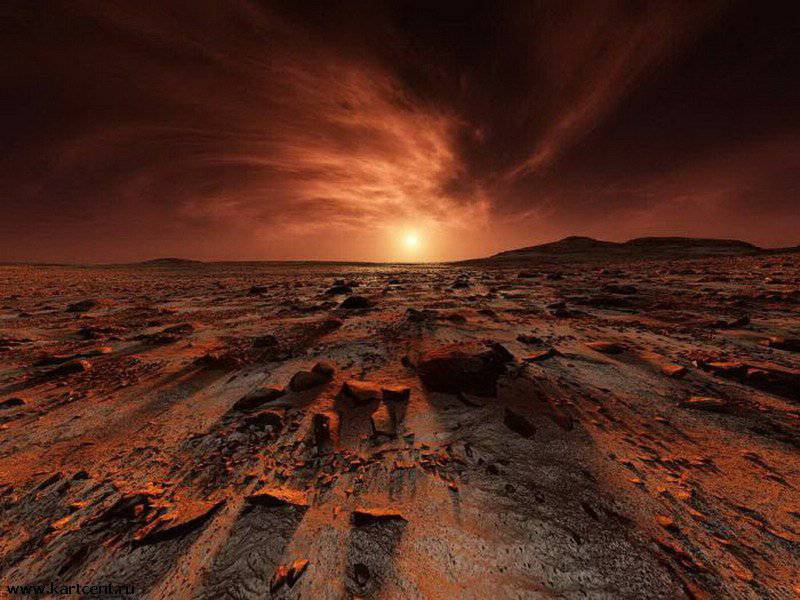
Yury Kubarev believes that the key problem in the development of the space industry in our country is the secrecy in decision making. There is no nationwide work in the country that would unite the most diverse opposing groups of Russian scientists, which used to be characteristic of the USSR (Gagarin's flight into space), for the USA (the Kennedy national astronaut training program) and today's China.
All this in one degree or another affects the solution of the three different problems that exist today, which the Russian Federal Space Agency is facing. The first one concerns a small number of qualified personnel. For the most part, these are already people in old age who cannot see a shift. It is precisely because of the secrecy peculiar to Roskosmos that many experienced cadres are simply not involved in the work, since their ideas do not fit with the projects of the dominant groups. For this reason, personnel shortage will only harden. The second problem is related to the first one - this is the problem of financing. Financing is limited, and this is understandable, in our country financial possibilities are not endless. Much worse is that today money is sometimes spent on dead-end projects that were adopted under conditions of monopoly of views. Most of all, this is manifested in the third technological problem, which directly concerns the question of what, in fact, will we continue to fly on? In Russia, in fact, no work is being done on the creation of ships of the future and prospective engines.
At the same time, Yuri Kubarev believes that due to technological and financial problems, mankind needs to work on an international program of a flight to Mars. According to him, the moon is no longer interesting either in terms of politics and prestige, or in terms of geology. Just Roskosmos with existing ships and engines can no longer count on anything, hence the choice. Yuri Kubarev noted that he himself is not a geologist, but the opinions that he had heard from the best specialists in this field say that there is nothing to do on the Moon. Yes, 10 years ago, Mars was among the top priorities for Roscosmos! But only then came the awareness of their own capabilities ...
Information sources:
http://rg.ru/2014/04/11/rogozin.html
http://svpressa.ru/society/article/85442
http://www.vedomosti.ru/politics/news/20949721/roskosmos-obyavil-konkurs-na-razrabotku-koncepcii-razvitiya
http://www.3dnews.ru/818248
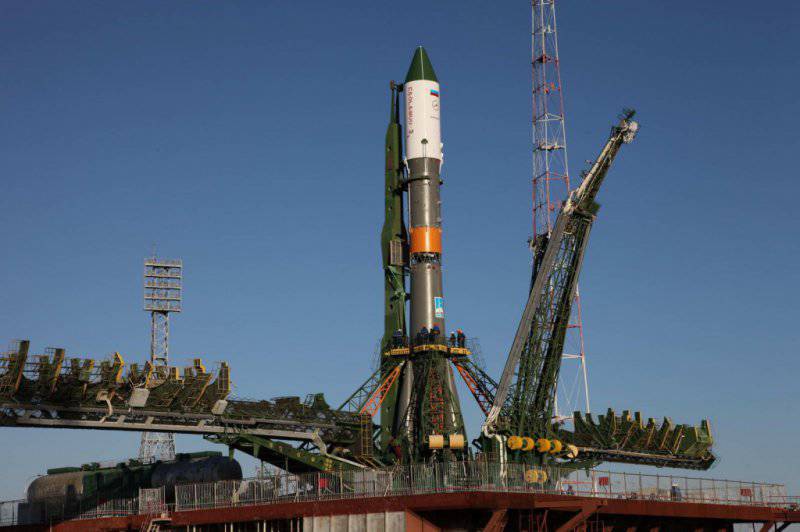
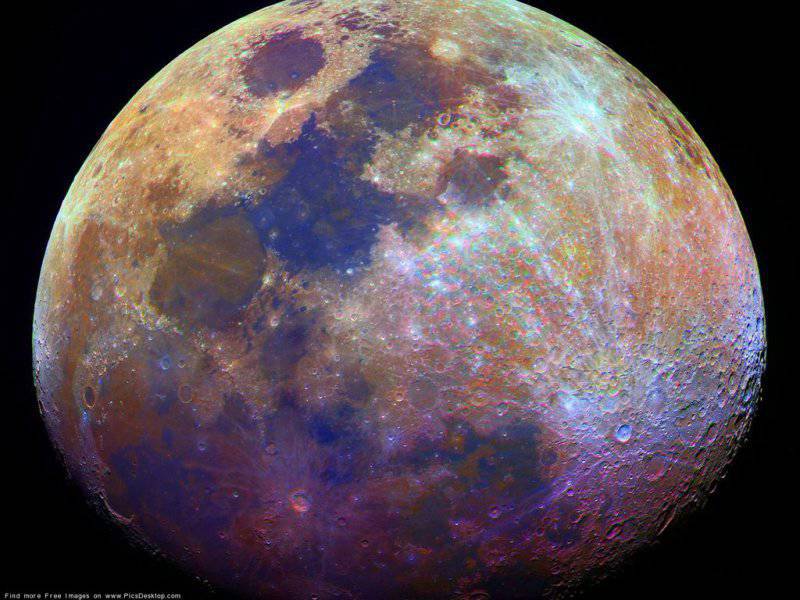
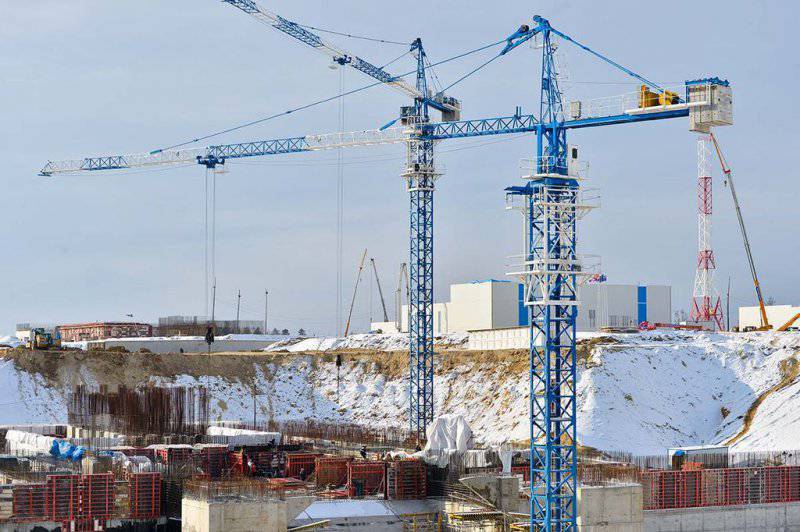
Information